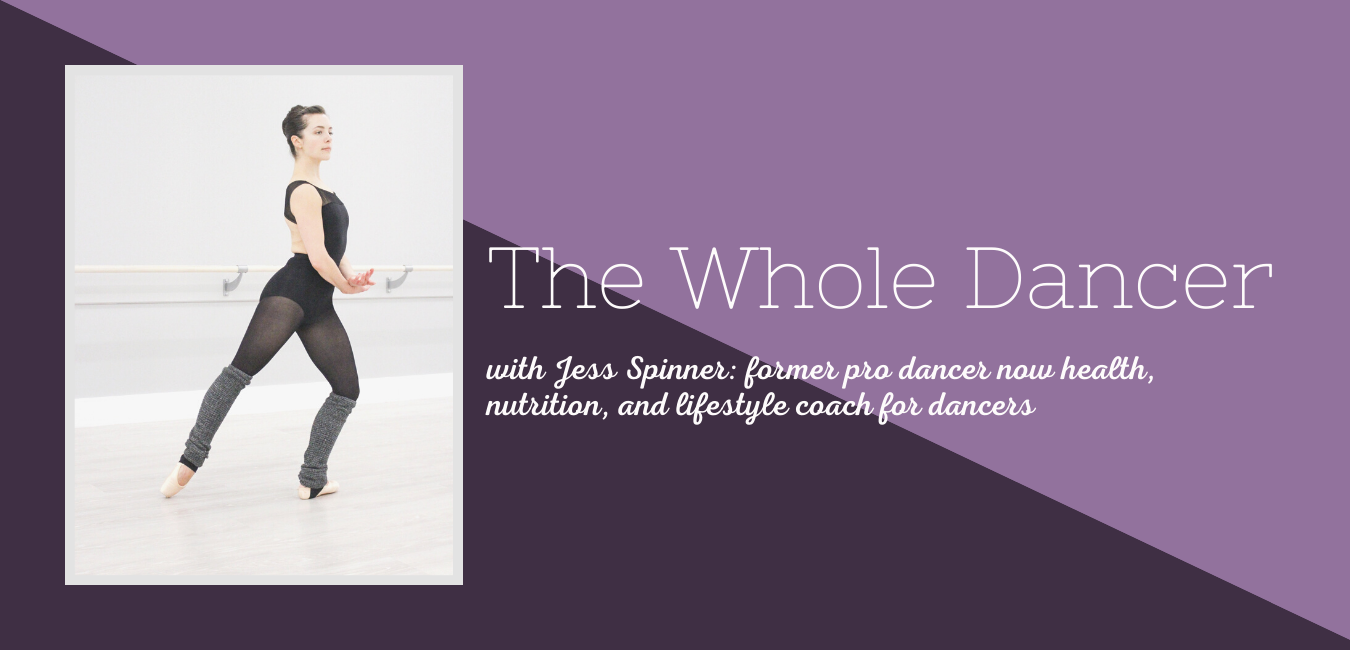Why Honoring Your Hunger Cues is Essential
Do you recognize feelings of hunger and fullness? How do you respond?
If you’ve gotten into the habit of ignoring your feelings of hunger or intentionally under-eating when they come up, it’s time to tune back in.
If you’ve gone through periods of restriction, you can’t expect an instant ability to tune into your body. You’ve been denying your true, physical feelings for a while, so it will take time to recalibrate.
Here’s what happens when you get into the habit of ignoring your hunger cues:
- You’ll have a hard time maintaining energy because you can no longer feel hunger or fullness, and it becomes harder to recognize these cues.

- You start to crave foods without much nutritional value. It’s likely that if you’re ignoring hunger cues, you’re also paying little attention to what food you might actually need to power through your dancing.
A common practice that encourages you to ignore your hunger altogether:
Dieting.
It’s true. Most diets suggest that you ignore your hunger cues and undereat to meet your goals. I’m sure you’ve heard the myth of “calories in vs. calories out” and the principle that to lose weight, all you need to do is create a calorie deficit.
So many dancers fall into the trap of severely undereating to meet body goals. This compromises your bone health, recovery, energy, and strength.
The value of listening to your body.
Dance training and development is served by the ability to tune in closely to your body. The ability to know when to stop dancing due to injury is invaluable, and knowing when to eat more to support your dancing is equally essential.
Many dancers have a hard time with both those skills — do you?
By listening to your body, you’ll avoid worsening an injury as it’s starting. Early injury intervention can, of course, help lessen time away from dance and speed recovery time.
When you listen to your body and give it the food it needs when it needs it, you’re boosting immunity, keeping cravings at bay, and supporting strong muscles and bones.
If you’re already disconnected from your body’s cues:
Put some regular practices in place to tune back in.

Dancers often say, “it feels good when I feel hungry.” While I understand where they’re coming from (yes, I’ve been there), when you get to a place where you feel good running on empty, it’s possible you’re in disordered eating territory. Obviously, there are other factors, but if you relate to that feeling, take a closer look.
The more disconnected you get from your body’s cues, the harder it is to find balance with food and to reach your personal best body.
You’ll also be more likely to give in to cravings and fall into patterns of undereating or restricting and overeating or binge eating.
If you have the goal to reconnect to your body so you can identify your hunger and fullness cues, but you’re not there yet, start with these tenants of “Structured Eating.”
Structured Eating maintains the following guidelines:
- Eat within the first 30-60 minutes of waking.
- Eat every 3-4 hours so that you are eating 3 meals and 1-3 snacks per day.
- Balanced meals include proteins, carbohydrates, fats, fruits, and vegetables.
- Balanced snacks include protein, fats, and either complex carbohydrates, fruits, or vegetables.
- Mini meals may help with blood sugar and symptom control in the late afternoon.
Here are some additional tips to tune into your body again.
- Make sure you keep healthy snacks handy — that way, when hunger strikes, you’ll be able to respond.
- Stay aware of the timing of your meals and snacks, and eat every 3-4 hours. Never go more than the 5-Hour Rule.
- When you’re hungry, EAT.
- While you eat, pay attention to how you feel (physically, mentally, AND emotionally).
- Stop eating BEFORE you’re “full.”
- If you use an app to track your food intake and calories, STOP.
- Try to move away from letting food choices be influenced by friends or family.
If you find that these tips aren’t quite getting you to where you want to be, don’t be afraid to seek support from a health coach who works with dancers in order to create a balanced relationship with food and your body. It is often necessary to get an outside perspective to make these adjustments. A holistic health coach can help you adjust your lifestyle and approach to food so you can wholly tune into your body.
